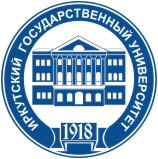Politicizing Europe, Europeanizing domestic policy and politics: the changing nature of relationship between the EU and its member states
Chair holder – Elizaveta Matveeva
Paradoxically enough, European Union, which is very often criticized from within for the lack of unity and of efficient and well-coordinated foreign policy, is commonly seen from outside as both a “black box” and a very abstract unit. Students and experts in International Relations, as well as general public inRussiahave very vague perceptions of the institutional architecture, decision-making processes and the nature of relationship between different actors and levels of governance within the EU political system. Even EU studies inRussiaare mostly reduced to the expertise in EU-Russia relations. This simplistic approach should be regarded as one of the key reasons for mutual misperceptions and misunderstanding. Russian higher education institutions lack courses and in-depth analysis based on primary research dealing with endogenous threats and challenges that the EU, its member states and Europeans face today. That is the reason why the realization of the project aimed at teaching and research on these issues atIrkutskStateUniversityis of high importance.
Research
Project title
European Union involvement in Italian domestic politics at the turn of 21st century: Europeanization of political sphere, politicization of integration processes inItaly
Description
Research project which is conceived as an integral part of a habilitation procedure aims at a comprehensive analysis of political elites and general public reactions to the increasing EU involvement in domestic politics and policymaking inItaly.
It is subdivided into two distinct but interdependent tracks:
‘Politicization of “Europe” in Italy during national election campaigns of 2001, 2006, 2008 and 2013’
and
‘European identity construction in Italian public sphere: analysing the dynamics of actors and frames’.
In-depth analysis of political elites and public opinion perceptions of the EU inItalyhas been recently performed by the research team of INTUNE (Integrated and United. The Quest for Citizenship in an Ever Closer Europe) network project in 2005-2009. Expert interviews and mass surveys were applied as principal methodological tools. This research will use UNTUNE project results as a departing point for analysis but it will seek to trace the trajectories of ongoing changes in the relationship between the EU, on the one hand, and domestic political actors and public opinion, on the other hand, with the application of alternative methodological instruments.
Methodology
For the both case studies indicated above political claims analysis is used as a primary methodological approach. Methodological framework proposed by Ruud Koopmans and Paul Statham for the Europub.com (The Transformation of Political Mobilisation and Communication in European Public Spheres) project was slightly modified to respond the objectives of this research.
Two independent data sets are supposed to be created in the course of the research project implementation.
In the first case, the analysis of political claim-making in Italian national, regional and party newspapers is applied to explore the salience of EU-related issues (as compared to other campaign issues) and the level of polarization between different views and perceptions of the European integration process.
In the second case, Italian electronic media data coding and analysis are used to trace a relationship between different actors involved in the process of European identity construction and a variety of a European identity frames they propose.
Teaching
The project includes teaching three (one new and two established) courses on European Union studies embodied in ISU BA and MA degree programs in International Relations and MA degree program in History. All these courses are intended to provide students with the insight into the complex nature of EU institutional architecture, political and decision-making processes, and into the issues of relationship between the EU and its member states. The course on the history and theory of European integration gives students a broad outlook into the EU history and provides them with conceptual and methodological frameworks for explaining and exploring integration processes within the European Union. Courses on EU social policy and onItalyin European politics are designed to put a focus on ‘country-specific’ and ‘policy-specific’ dimensions of the EU multi-level governance system. This unique combination of moving focuses and different approaches will guarantee in-depth teaching on EU and member states’ politics and political systems.
Impact
Both extensive teaching experience in EU matters and deep engagement of Chair holder in primary research on the subject are expected to stimulate young researchers’ interest and encourage undergraduate, graduate and postgraduate students in different areas of EU studies. Application of alternative methodological approaches to analyse the politicization ofEuropeand Europeanization of member states’ political and public spheres will enrich international scholarly discussion on the subject and provide both academia and general public with better understanding of European integration process.


